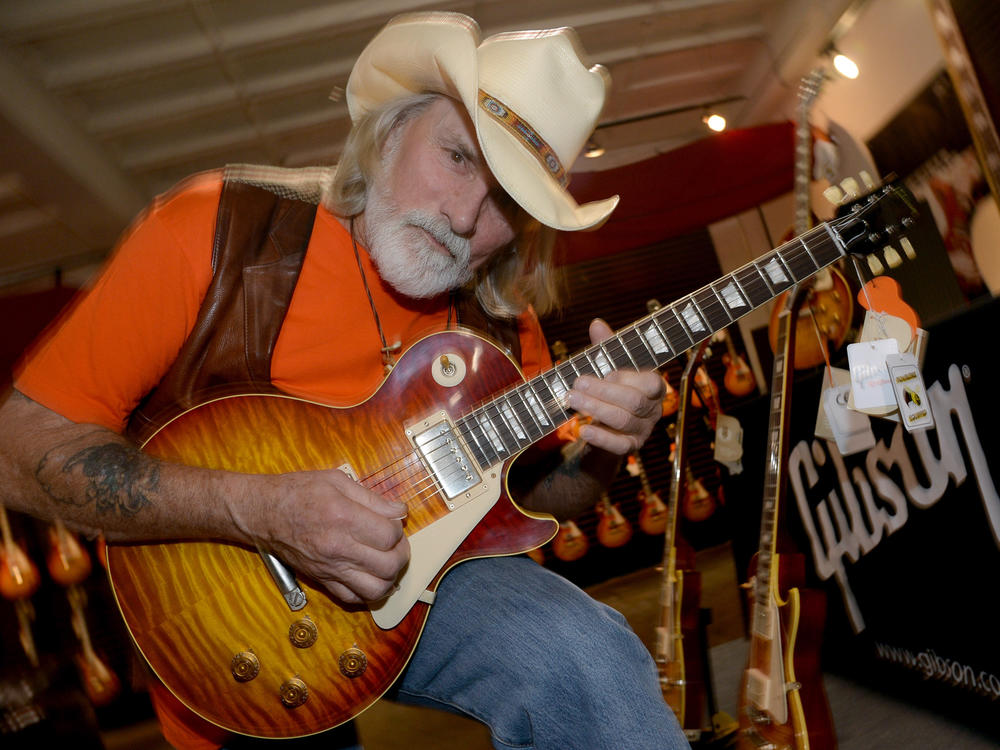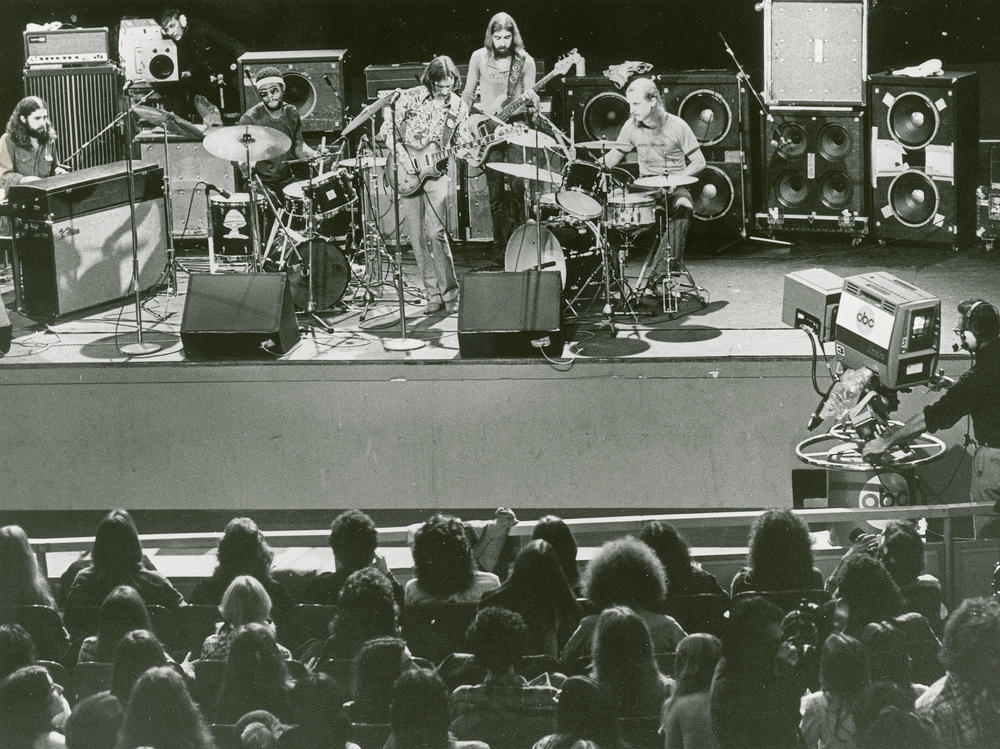Section Branding
Header Content
Dickey Betts, founding member of the Allman Brothers Band, dies at 80
Primary Content
Dickey Betts, a founding member of the renowned rock group the Allman Brothers Band, died at at his home in Osprey, Fla. on Thursday. The influential guitarist, songwriter and vocalist had been battling two kinds of cancer as well as chronic obstructive pulmonary disease (COPD). He was 80 years old.
The news was shared on Betts' official website in a statement by his family.
"Dickey was larger than life, and his loss will be felt world-wide," the statement said.
Betts' blues, rock and country-influenced guitar style helped define Southern rock in the 1960s and '70s.
"Dickey was one of the most unique guitar stylists in the word, and you knew it was him when you heard him on record or live," said longtime Allman Brothers member Chuck Leavell, who currently serves as the Rolling Stones' music director/keyboard player, in a statement shared with NPR. "He leaves an enduring and enviable legacy that we will all be celebrating for eternity."
Betts was best known for the song "Ramblin' Man." The Allman Brothers Band was initially reluctant to record the song, which Betts wrote and sang, because they thought it sounded too much like a country song.
Released in 1973, "Ramblin' Man" went on to become the band's first and only top 10 single on the Billboard Hot 100 chart.
The lean, mustachioed guitarist cut such an iconic figure that director Cameron Crowe based the rock star hero of his 2000 movie Almost Famous on him. The character in the film was played by Billy Crudup.
"Crudup's look, and much more, is a tribute to Dickey," Crowe said in a 2017 interview for Rolling Stone magazine. "Dickey seemed like a quiet guy with a huge amount of soul, possible danger and playful recklessness behind his eyes. He was a huge presence."
Forrest Richard "Dickey" Betts was born in 1943 in West Palm Beach, Fla. He came from a musical family and started out playing ukulele at 5 years old, before picking up the mandolin, banjo and guitar. He began performing in rock bands around Florida — which remained his lifelong home state — and joined the Allman Brothers Band at its inception in 1969.
Betts started out playing co-lead guitar with Duane Allman (one of the two brothers after which the band took its name). He pushed rock guitar improvisation into new territory — the guitarist's spiraling sound is perfectly captured in the track "In Memory of Elizabeth Reed" on the Allman Brothers' 1971 At Fillmore East album. Betts also made his name as a songwriter with songs like "Jessica" and "Blue Sky."
After Duane Allman's death in a motorcycle accident in 1971, Betts became The Allman Brothers Band's sole guitarist and lead singer. He had a checkered relationship with the group over the years, taking breaks to perform with other ensembles and work on solo projects. But Betts wasn't able to replicate the success he had with The Allman Brothers Band when he struck out on his own.
Known for his hard living ways, Betts earned a reputation for trashing hotel rooms and taking swings at police officers.
Yet according to his longtime manager, David Spero, Betts was also a great mensch.
"He was such a giving man," Spero said in an interview with NPR. "He took time with his fans. He'd sign anything. He posed for every picture."
The musician's generosity was also highlighted in a 2005 interview for WHYY's Fresh Air, when country music star Billy Joe Shaver described how Betts helped kickstart the music career of Shaver's son Eddy Shaver by noticing his talent and even passing along prize guitars.
"Dickey Betts gave [Eddy Shaver] his 335 that belonged to Duane Allman and a '55 Strat when he was 13 years old," Shaver said. "And Dickey had recognized quicker than I did how much talent he had."
Story edited by Jennifer Vanasco.


